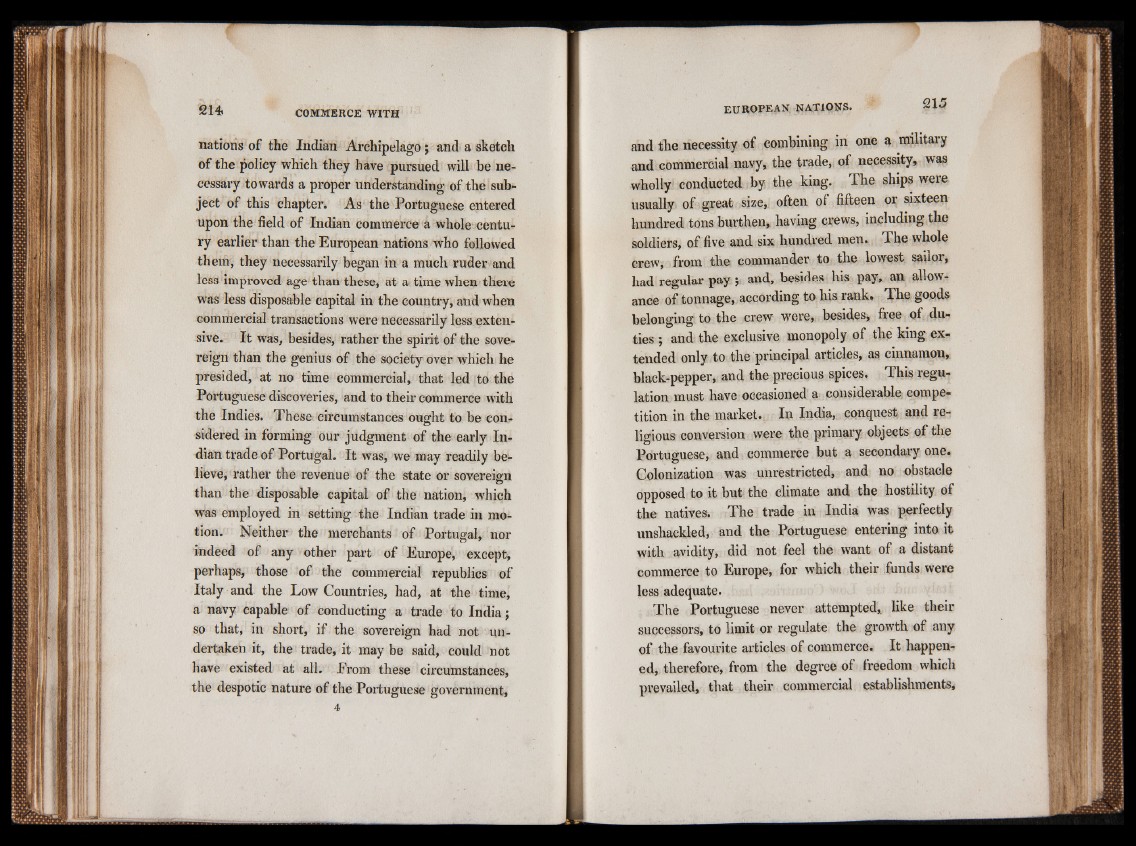
nations of the Indian Archipelago; and a sketch
of the policy which they have pursued will be necessary
towards a proper understanding of the subject
of this chapter. As the Portuguese entered
upon the field of Indian commerce a whole century
earlier than the European nations who followed
them, they necessarily began in a much ruder and
less improved age than these, at a time when there
was less disposable capital in the country, and when
commercial transactions were necessarily less extensive.
It was, besides, rather the spirit of the sovereign
than the genius of the society over which he
presided, at no time commercial, that led to the
Portuguese discoveries, and to their commerce with
the Indies. These circumstances ought to be considered
in forming our judgment of the early Indian
trade of Portugal. It was, we may readily believe,
rather the revenue of the state or sovereiogn than the disposable capital of the nation, which
was employed in setting the Indian trade in motion.
Neither the merchants of Portugal, nor
indeed of any other part of Europe, except,
perhaps, those of the commercial republics of
Italy and the Low Countries, had, at the time,
a navy capable of conducting a trade to India;
so that, in short, if the sovereign had not undertaken
it, the trade, it may be said, could not
have existed at all. From these circumstances,
the despotic nature of the Portuguese government,
4
and the necessity of combining in one a military
and commercial navy, the trade,, of necessity, was
wholly conducted: by the king. The ships were
usually of great size, often of fifteen or sixteen
hundred tons burthen,, having crews, including the
soldiers, of five and six hundred men. The whole
crew, from the commander to the lowest sailor,
had regular pay* and, besides his pay, an allowance
of tonnage, according to his rank. The goods
belonging to the crew were, besides, free of duties
; and the exclusive monopoly of the king extended
only to the principal articles, as cinnamon,
black-pepper, and the precious spices, This regulation
must have occasioned a considerable competition
in the market.; In India, conquest and religious
conversion were the primary objects of the
Portuguese, and commerce but a secondary one.
Colonization was unrestricted, and no obstacle
opposed to it but the climate and the hostility of
the natives. The trade in India was perfectly
unshackled, and the Portuguese entering into it
with avidity, did not feel the want of a distant
commerce to Europe, for which their funds were
less adequate.
The Portuguese never attempted, like their
successors, to limit or regulate the growth of any
of the favourite articles of commerce. It happened,
therefore, from the degree of freedom which
prevailed, that their commercial establishments,